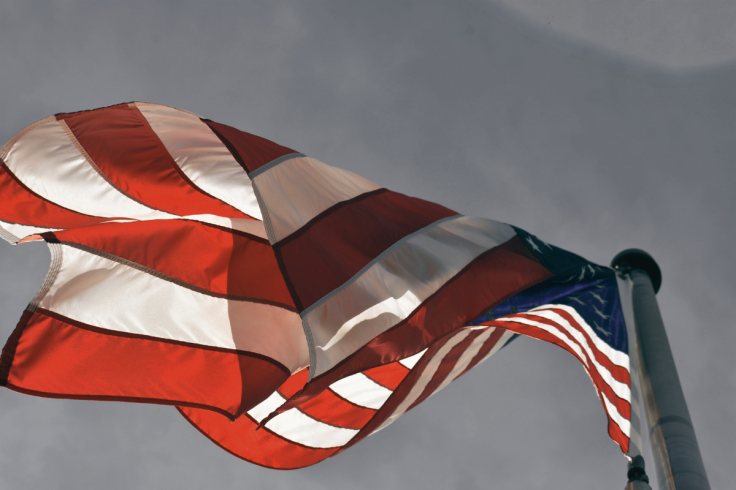Camping World CEO Refuses to Lower Giant US Flag Outside Dealership Despite Legal Threats
At the heart of the row is a 3,200-square-foot flag hoisted on a 130-foot pole

Marcus Lemonis, CEO of Camping World, has ignited controversy by refusing to lower oversized American flags at his dealerships, openly defying local regulations. The dispute has escalated into a legal battle, pitting corporate patriotism against municipal safety rules across multiple locations.
At the heart of the row is a 3,200-square-foot flag hoisted on a 130-foot pole at Camping World's Greenville, North Carolina, site, installed in October 2024. Local regulations limit flagpoles to 70 feet and impose size restrictions, rules also violated in Sevierville, Tennessee (where the cap is 44 feet), as well as in cities such as Morgan Hill, California, and Onalaska, Wisconsin.
Flag Problems
Lemonis, a Lebanese-born adoptee, views the flag as a tribute to the country that enabled his success, employing 13,000 people. 'This country gave me an opportunity,' he says, framing it as gratitude according to sources. Cities counter that these giant flags distract drivers and mar scenic views vital for tourism, as a Sevierville official noted: 'Excessively tall structures can pose safety hazards and impact what makes our city a destination.'
Now legal consequences have escalated. Greenville's city council voted 4-2 on 24 March 2025, to pursue civil action, mirroring Sevierville's March filing. Fines start at £38 ($50), rise to £76 ($100), then £191 ($250) daily, accumulating to £8806 ($11,500) in some cases. Lemonis remains defiant, stating, 'The flag is not coming down,' even if jailed.
This echoes his 2019 victory in Statesville, North Carolina, where he secured the right to fly a similar flag after fines exceeded £760 ($992) as per sources. That settlement emboldened his current stance, turning a regulatory dispute into a personal crusade.
Public Divide and Community Fallout
Public reaction is polarized. Supporters laud Lemonis's patriotism, evidenced by a 2019 petition with 150,000 signatures backing Gander RV, a Camping World subsidiary. Critics, however, see a publicity stunt for the RV retailer.
The dispute has strained communities, with city workers in Sevierville and Greenville facing threats from supporters, prompting officials to decry a 'failure of basic human decency' according to sources. Legal costs, potentially in the tens of thousands, further burden taxpayers, diverting resources from local priorities like infrastructure or public services.
Lemonis's flag disputes, dating to 2019, reveal a pattern of defiance often resolved in his favor, reinforcing Camping World's patriotic brand. The Statesville settlement set a precedent, suggesting a calculated strategy blending legal fights with public relations.
What's Next
For citizens, the saga highlights the need to reconcile patriotism with practicality. Clear flag codes could prevent such clashes, preserving safety and scenery alongside national pride. Lemonis's stand inspires some, but at what cost to local harmony and public funds?
Residents in affected cities question whether symbolic battles justify the strain on community relations and budgets, especially as court cases prolong the conflict.
In sum, this controversy, ongoing as of 2 April, 2025, encapsulates a values clash—corporate expression versus community rules—with significant stakes. Lemonis's resolve will likely influence future debates on patriotism, safety, and corporate responsibility, leaving a lasting mark on how businesses navigate symbolic gestures in regulated spaces.
© Copyright IBTimes 2025. All rights reserved.





















